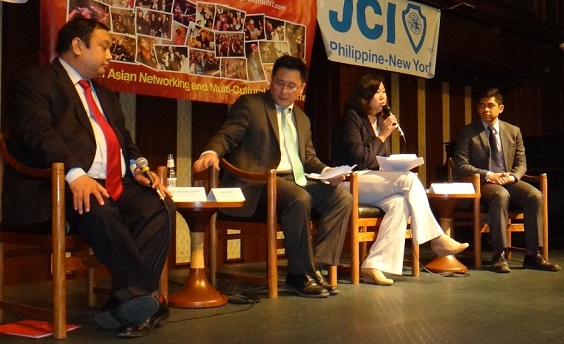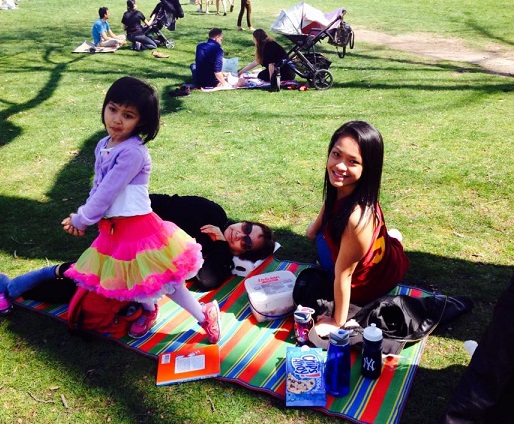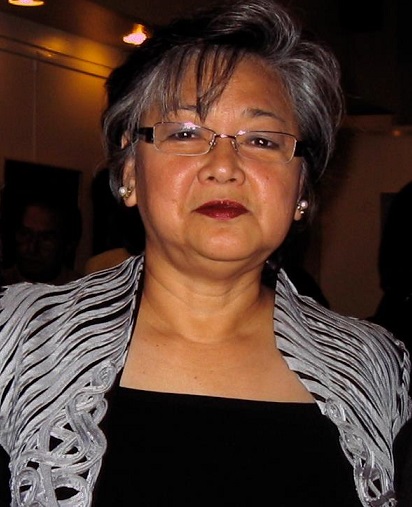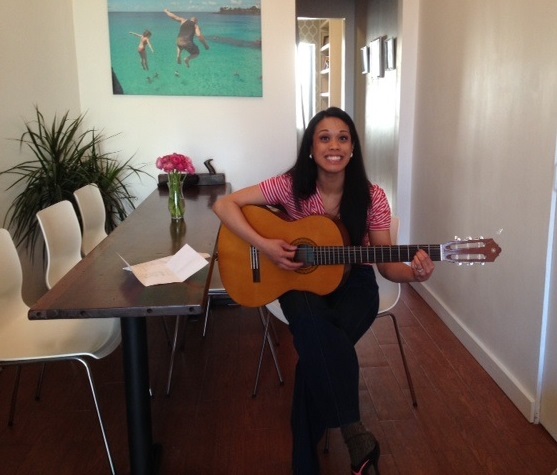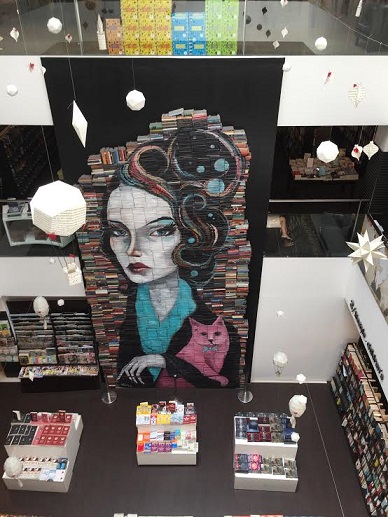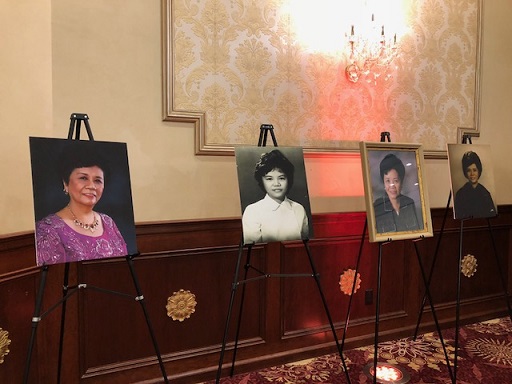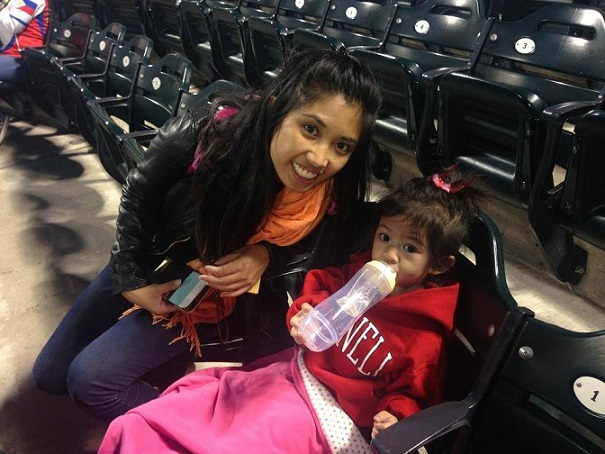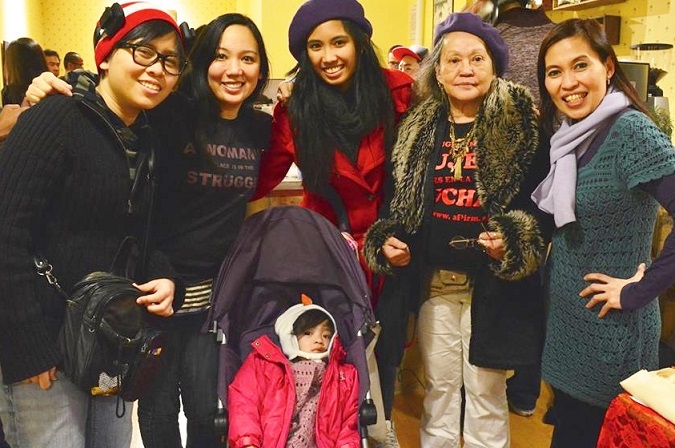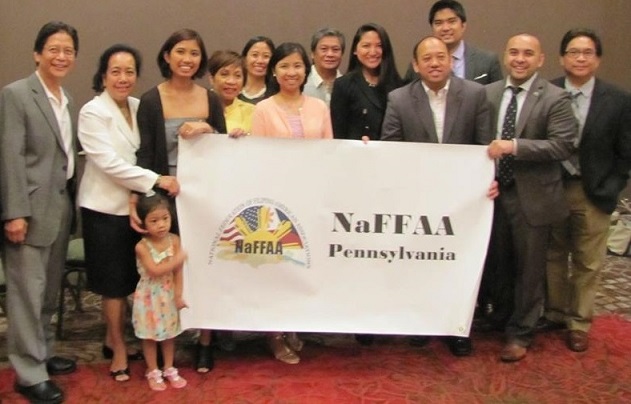Kristina Kalaw Joyas confronts the stereotypes about parenting and community organizing
By Cristina DC PastorThe first time I saw Kristina Kalaw Joyas was at a packed town hall meeting at the Philippine Center a year or so ago. She was wheeling her daughter on a stroller, navigating around the backpacks and handbags that have taken over the floor.
“Can’t she find a sitter?” the woman next to me shot me a snide remark.
The one who made the remark comes from an earlier generation where the women either worked or stayed home, and rarely the two parts mixed. The Queens-born Kristina, who is in her late 20s, appeared to be tossing aside the stereotypes and writing her own rules on how to live her best life.
“I take my daughter with me, yeah, I take her with me as often as I can,” she said in an interview with The FilAm. “Part of my identity as a mother is to bring her into the community and expose her to my work.” She profiled her 4-year-old Katerina Valentine as an “insightful” child, “pretty good when attending these events.”
She did not have to explain, but I asked. She explained in a way that sought to enlighten me as well: “People shouldn’t stop being community organizers just because they are transitioning to another period of their lives. You don’t stop identifying as a Filipino just because you now identify as a parent.”
Kristina grew up in a disciplined household and learned independence at a young age. “I enjoyed school growing up,” she declared.
Her parents – her mother is a microbiologist and her father a real estate agent – are typically Filipino in their value system and wanted all their three children to get a good education. They tried to supplement Kristina’s classroom education with arts and music lessons, which explains why she plays the flute and the piano and dabbles in painting.
She started working at 14 at a parish retreat house where she served food to residents. “I did that to earn my own money,” she said. With her first earnings, she was able to buy herself a phone.
For her undergraduate studies, she went to Stony Brook University and earned a degree in Economics, with a minor in Fine Arts.
Nonprofit work appealed to Kristina when she started getting deeply involved with community organizing. She started Legacy Mentorship Inc. in 2013, coming from a rich and well-rounded experience fostering leadership development programs for members of the Pilipino American Unity for Progress or UniPro. She remains a member of UniPro’s Board of Trustees, but decided to exit her position as director of Staff Development and to spin off as Legacy.
“I enjoyed the work and wanted to make it available to the community at large,” she said.
Her work at the time involved organizing workshops for new members and interns, educating them on the UniPro culture, which is to engage community organizations in a continuing dialogue about Filipino American issues not limited to the Tri-State region.
“It’s fostering our work culture and how to translate that into community work where you can be more impactful,” explained Kristina further. “It’s giving the interns the foundation of Pilipino history and an understanding of why UniPro was created.”
Legacy’s work grew from UniPro’s program and prepares Asian students, such as Filipinos, for leadership positions.
Their first program, Project LEAD, is an example of how Legacy executes this mission. “It’s for students who get voted into leadership positions in their organizations to prepare them for incoming year. We work with them for five weeks to cover their skill sets and discuss any issues before they assume their position,” she said. “It supplements their work and prepares them for their term in the coming school year.”
Legacy is also involved with Philippine Graduation — or PGrad — an initiative of the Philippine Consulate, in collaboration with UniPro and the National Federation of Filipino American Associations (NaFFAA). It’s a community event where the Philippine Center hosts a commencement ceremony for new college graduates and their families. The event highlights the academic accomplishments of the Filipino community and community leaders encourage them to prosper in their fields as Filipino Americans.
“It’s been growing,” said Kristina, from 20 graduates who attended on the first year to an anticipated attendance of 75 on its third year.
When she is not a social activist or a graduate student at Columbia, she has parental duties, like looking for a Pre-K school for KV. Parenting, she accepts, is a joy and not a distraction nor passes for a burden.
When Kristina has a community meeting, her daughter KV quietly makes art or plays with others. The little girl has been spotted at NaFFAA leadership workshops and AF3IRM protest rallies. Kristina welcomes sitter help when a family member offers, but she is not one to moan and fuss when no one is available. She is fortunate to have friends who are supportive. “People are willing to help me watch my daughter if ever needed. I am involved in school, at work, in the community, and I have family and friends who offer to help out”
“Often,” said Kristina, “the Filipino community views its active members as singular entities. They keep their family lives separate. It’s time we start becoming more inclusive and redefining what we consider a true community.”
“We often forget,” she hastened to add, “that we are all people with families.”




